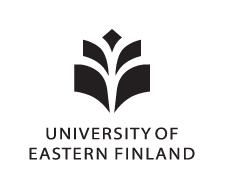Data from: Sperm pre-fertilization thermal environment shapes offspring phenotype and performance
Date
2018-10-17Author(s)
Unique identifier
doi:10.5061/dryad.25rg2h3Metadata
Show full item recordResearch data
Citation
Kekäläinen, Jukka (University of Eastern Finland). Oskoei, Párástu (University of Eastern Finland). Janhunen, Matti (Natural Resources Institute Finland). Koskinen, Heikki (Natural Resources Institute Finland). Kortet, Raine (University of Eastern Finland). Huuskonen, Hannu (University of Eastern Finland). , Data from: Sperm pre-fertilization thermal environment shapes offspring phenotype and performance, 2018, doi:10.5061/dryad.25rg2h3.Licensed under
Abstract
Sperm pre-fertilization environment has recently been suggested to mediate remarkable transgenerational consequences for offspring phenotype (transgenerational plasticity, TGB), but the adaptive significance of the process has remained unclear. Here, we studied the transgenerational effects of sperm pre-fertilization thermal environment in a cold-adapted salmonid, the European whitefish (Coregonus lavaretus L.). We used a full-factorial breeding design where the eggs of five females were fertilized with the milt of 10 males that had been pre-incubated at two different temperatures (3.5°C and 6.5°C) for 15 hours prior to fertilization. Thermal manipulation did not affect sperm motility, cell size, fertilization success or embryo mortality. However, offspring that were fertilized with warm-treated milt were smaller and had poorer swimming performance than their full-siblings that had been fertilized with cold-treated milt. Furthermore, the effect of milt treatment on embryo mortality varied among different females (treatment×female interaction) and male-female combinations (treatment×female×male interaction). Together these results indicate that sperm pre-fertilization thermal environment shapes offspring phenotype and post-hatching performance and modify both the magnitude of female (dam) effects and the compatibility of the gametes. Generally, our results suggest that short-term changes in sperm thermal conditions may have negative impact for offspring fitness. Thus, sperm thermal environment may have an important role in determining the adaptation potential of organisms to climate change. Detailed mechanism(s) behind our findings require further attention.
Keywords
Link to the original item
https://datadryad.org/stash/share/votSLHzltdzZy9NRG1OfZ4mJfOOvDpyuSMSzCxvhak0Collections
Related items
Showing items related by title, author, creator and subject.
-
Hip hip hurra! Finland 100 i Finlands turism år 2017 och hur hundraårsjubileet presenteras på svenskspråkiga internetsidor
Suhonen, Nita C (Itä-Suomen yliopisto; University of Eastern Finland, 2018)Dataset
-
The new muslim feminist image in Finland: Chances and challenges : Muslim women activism in Finland
Fath, Mariam (Itä-Suomen yliopisto; University of Eastern Finland, 2011)Dataset
-
Contemporary and Traditional Voices: Reactions to Same-Sex Marriage Legislation in the Evangelical Lutheran Church of Finland and the Orthodox Church of Finland
Metso, Pekka; Kallatsa, Laura (Brill, 2018)This article studies the debate on same-sex marriage in the early 21st century, within the two national churches of Finland, the Evangelical Lutheran Church and the Orthodox Church. Legislation facilitating the so-called ...Dataset




